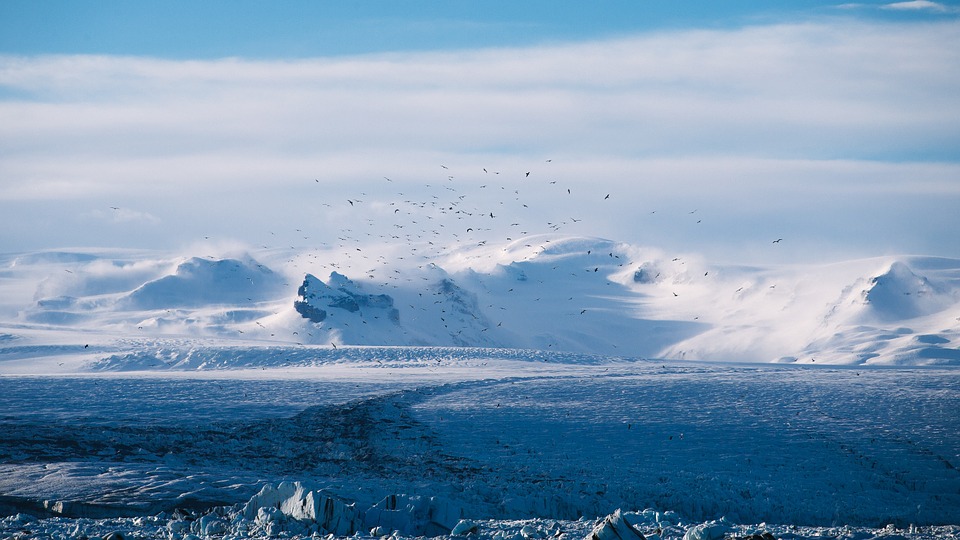Antarctica is not usually known as a place to have some fun in, save for influencers who plan on taking a trip. However, scientists have discovered an interesting part about the arctic, such as the sounds that come from ice being dropped down a borehole.
Express reports that scientists found dropping chunks of ice down a borehole produces interesting sounds. Back in 2018, University of Rochester glaciologist Peter Neff and his team dropped a chunk of ice down a borehole that was 90 meters deep. Dr. Neff tweeted a video recording of the activity, which later got thousands of likes and retweets from followers.
The chunk of ice that was dropped down the deep borehole created a sound similar to a bullet ricocheting off a wall, and the ice seems to produce a more heartbeat-like rhythm as it hits the bottom of the hole. Although it may seem like a mundane activity, a way for scientists to spend their free time in the polar region, what makes this especially interesting is that the result is the same no matter how many times the experiment was repeated.
Recently, scientist John Andrew Higgins shared a video doing the same experiment. This time, he dropped a nine-inch chunk of ice down a borehole measuring 450 feet deep. The sound effect was the same, only with a higher frequency due to the depth of the hole. The video also went viral on Twitter, with many mentioning that they would probably do the same thing if they ever went to Antarctica.
Recently, it was reported that scientists have also found an unusual heat source coming from below the ice in Antarctica. The researchers discovered this unusual source near the Russian scientific research station at the southern Pole of Cold, which is in the East Antarctic Ice Sheet. After drilling, they discovered a body of water that is now known as Lake Vostok, which also happens to be the largest lake discovered in 100 years.
Lake Vostok has discovered as still liquid instead of being frozen, was isolated within the ice sheets for a very long time, estimated between 13,000 to 14 million years ago.



 Blue Origin’s New Glenn Achieves Breakthrough Success With First NASA Mission
Blue Origin’s New Glenn Achieves Breakthrough Success With First NASA Mission  Senate Sets December 8 Vote on Trump’s NASA Nominee Jared Isaacman
Senate Sets December 8 Vote on Trump’s NASA Nominee Jared Isaacman  Cogent Biosciences Soars 120% on Breakthrough Phase 3 Results for Bezuclastinib in GIST Treatment
Cogent Biosciences Soars 120% on Breakthrough Phase 3 Results for Bezuclastinib in GIST Treatment  Tabletop particle accelerator could transform medicine and materials science
Tabletop particle accelerator could transform medicine and materials science  FDA Pilot Program Eases Rules for Nicotine Pouch Makers
FDA Pilot Program Eases Rules for Nicotine Pouch Makers  SpaceX Starship Explodes in Texas During Test, Citing Nitrogen Tank Failure
SpaceX Starship Explodes in Texas During Test, Citing Nitrogen Tank Failure  SpaceX’s Starship Completes 11th Test Flight, Paving Way for Moon and Mars Missions
SpaceX’s Starship Completes 11th Test Flight, Paving Way for Moon and Mars Missions  Eli Lilly’s Inluriyo Gains FDA Approval for Advanced Breast Cancer Treatment
Eli Lilly’s Inluriyo Gains FDA Approval for Advanced Breast Cancer Treatment  NASA Astronauts Wilmore and Williams Recover After Boeing Starliner Delay
NASA Astronauts Wilmore and Williams Recover After Boeing Starliner Delay  Is space worth the cost? Accounting experts say its value can’t be found in spreadsheets
Is space worth the cost? Accounting experts say its value can’t be found in spreadsheets  Neuralink Expands Brain Implant Trials with 12 Global Patients
Neuralink Expands Brain Implant Trials with 12 Global Patients  Astronomers have discovered another puzzling interstellar object − this third one is big, bright and fast
Astronomers have discovered another puzzling interstellar object − this third one is big, bright and fast 































